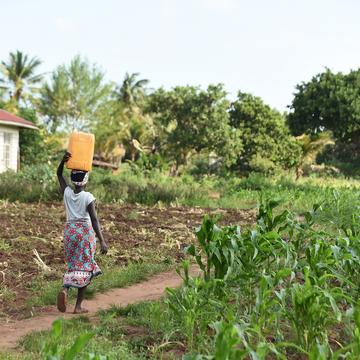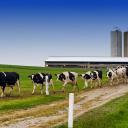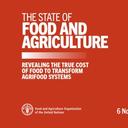New visions for the future of small-scale farming

New visions for the future of small-scale farming
Date posted: 17 January 2020
What is the future of small-scale farms in our changing global food systems? A new report on the issue has been published by the Food Systems Transformation Programme at the Environmental Change Institute. It argues that if the world’s 500 million small-scale farmers are to play a significant role in achieving long-term global food and nutrition security, and overcoming poverty, more effective and differentiated policy mechanisms are essential.
The report, Farmers and food systems: What future for small scale agriculture [1], calls for deeper and more nuanced understanding of the diversity of this vital sector, which is directly connected to the livelihoods of 40% of the world’s population. The research was funded by the Open Society Foundations (OSF) under the umbrella of Foresight4Food, a collaborative platform focused on informing the food systems foresight agenda. The work highlights a critical dualism in small-scale agriculture between a smaller number of commercial farmers who are above the poverty line and a large number of semi-subsistence farmers who are mostly very poor. This has profound policy and development implications.
[1] Woodhill, J., Hasnain, S. and Griffith, A. 2020. Farmers and food systems: What future for small scale agriculture? Environmental Change Institute, University of Oxford, Oxford.
On one hand, investments are needed to help optimise the efficiency, competitiveness, and sustainability of commercial small-scale agriculture. On the other, there must be targeted strategies to support those trapped in rural poverty or who are transitioning to alternative employment.
The report suggests that current measures such as subsidies and price support schemes are often ineffective, and fail to tackle the deeper and longer-term structural challenges of transforming small-scale agriculture.
According to Dr John Ingram, who leads the ECI’s Food Systems Transformation Group, the need for a new approach is crucial. “Profound changes are rapidly occurring in global food systems,” he says. “We need to re-envision the future for small-scale family farming to promote the production of healthy food within environmental limits, while also enhancing peoples’ livelihoods.”
Transformation necessitates policy and practice that is grounded in systems thinking, supported by synthesis of research and underpinned by plausible scenarios to assess trade-offs and re-imagined policy options. Only in this way can the pathways be found for the family farming sector to truly play a role in achieving the Sustainable Development Goals (SDGs).














